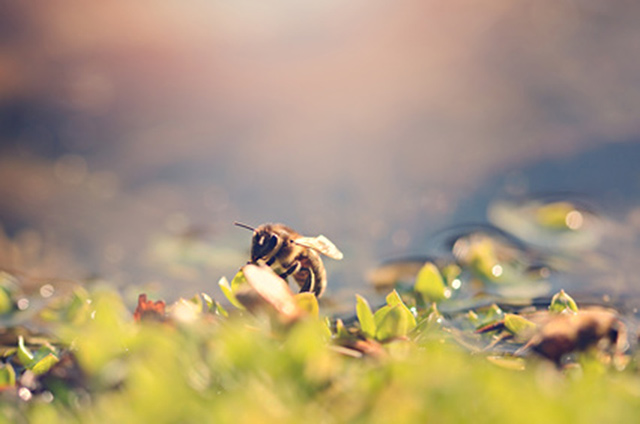Bee colonies are collapsing, which could spell serious trouble for the food we eat.
According to the National Resources Defense Council (NRDC), scientists believe that bee colonies are collapsing because of pesticide exposure, parasitic mites, and lack of food.
Pesticides found on plants at home and garden stores have been particularly harmful to bees. These pesticides are called neonicotinoids.
According to Beyond Pesticides, “Neonicotinoids are a relatively new class of insecticides that share a common mode of action that affect the central nervous system of insects, resulting in paralysis and death.”
Recently, these pesticides are being suspected as a major cause for the widespread collapses of bee colonies. The concern has grown so much that The European Commission decided to ban neonicotinoids.
Eating nectar containing these pesticides makes bees slow and disoriented, and it can make it difficult for them to find their nests.
Home Depot is banning bee-killing insecticides from their plants, according to a recent announcement.
As written in the article by TakePart:
“We will continue to challenge retailers to engage in a race to the top to move bee-toxic pesticides off their shelves and out of garden plants as soon as possible,” Lisa Archer, food and technology program director at FOE, said in a statement. “Bees are the canary in the coal mine for our food system and everyone, including the business community, must act quickly to protect them.”
Note: None of the information in our website is intended to diagnose, treat, cure or prevent any illness or disease. The content on our website is for educational purposes only.
DON’T FORGET to sign up for our weekly newsletter to get our latest articles, updates, free recipes and giveaways.
Honeybee deaths surged in the last year.
Common pesticides attract bees and kill them.
Bee propolis promotes hair growth.
REFERENCES:
1. “Issues: BEE Protective: Pollinators and Pesticides: Chemicals Implicated.” Beyond Pesticides. Beyond Pesticides, n.d. Web. 18 Dec. 2015.
2. “The World’s Largest Garden Supply Store Is Phasing Out Bee-Killing Insecticides.” TakePart. TakePart, n.d. Web. 18 Dec. 2015.

















